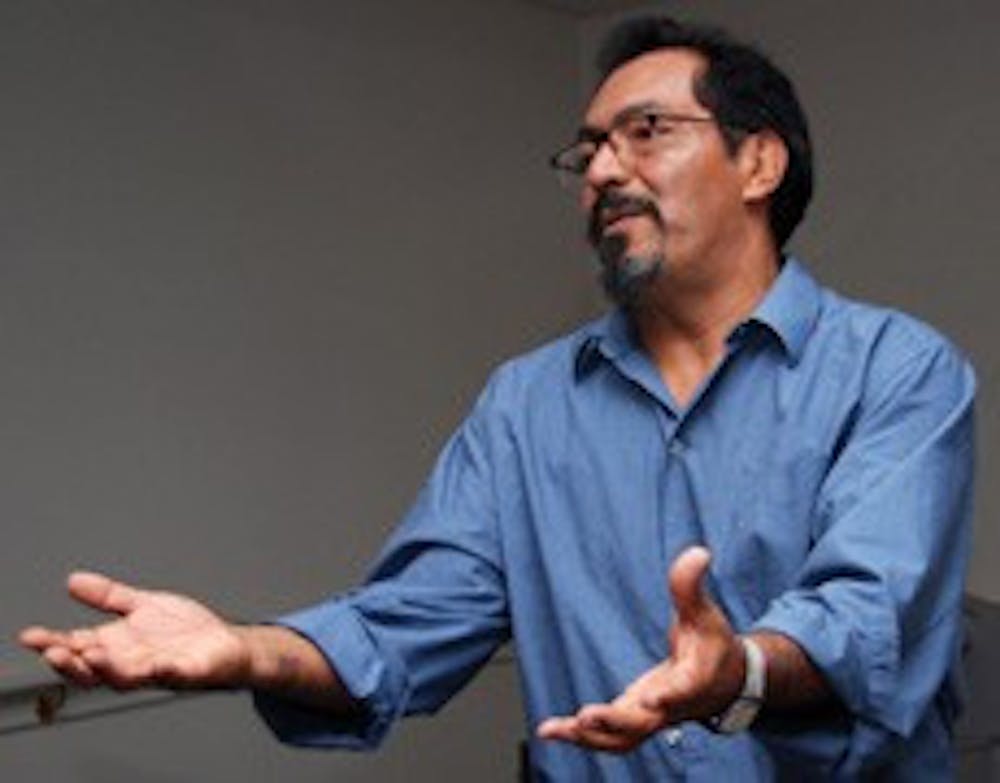When the blindfold was removed, Carlos Mauricio knew he was underground because thousands of cockroaches lined the ceiling of the chamber.
Tortured for nine days, Mauricio spoke about his experience at Payne Hall Tuesday night to a group of about 60 people.
"I was destroyed by torture," he said. "This is when I began to lose my own humanity and my own identity. This is when I thought there was no hope for me."
In 1983, while a professor at El Salvador University, Mauricio was abducted from his classroom, forced into an unmarked van and then tortured at the El Salvador National Police headquarters for suspected involvement in the country's guerilla movement.
Mauricio said he had accepted death until he was given a chance to live.
The speech was a part of a series that will be given by Mauricio across the country called the Journey for Justice Tour.
The talks will advocate the closing of a U.S. Army facility known as the School of the Americas/ The Western Hemisphere Institute for Security Cooperation, housed at Fort Benning in Columbus, Ga.
Mauricio said he and many feel the school's graduates are responsible for the majority of the torture and violence started in Latin American countries.
WHINSEC, formerly known as the School of the Americas, is a congressionally funded facility. It has trained more than 60,000 Latin American soldiers in military techniques and warfare for more than 59 years.
WHINSEC claims to educate its students in the ways of civilian and military law enforcement and promote democratic values, but Mauricio said many would disagree.
"In the years the school has been open, (the graduates) have gone on to commit some of the worst human rights abuses in this hemisphere," he said. "If we can stop sending them students, they will have no school."
In the past few years, Mauricio said he has chosen to get involved with educating the nation about the school and lobby Congress for its closure by joining the School of the Americas Watch.
"Torture is always carried out in secret places," Mauricio said. "That's why we, as Americans, need to ask for accountability and also transparency from our government to stop this from happening.
"(Torturers) now know that we are watching them."
Although many might believe the issues of Latin America are far removed from Arizona, Jessica Tartaro, an ASU psychology graduate student and organizer of the speech, said she thinks differently.
"Although many would like to believe they are far removed from the issue, it is taking place in our backyard," she said. "The issue is very much here now, and we are involved."
The same training manuals that are used at Fort Benning were developed in Sierra Vista, Ariz. at Fort Watchuka, she said.
Tartaro said when the manuals were revealed a few years ago, they contained educational material on violent interrogation tactics that had been taught to the Latin American soldiers who attended SOA.
"In part, it is hard to believe that our government is jeopardizing us in the process of hurting others," Tartaro said. "The government has just been really good at spinning the story to make it seem like we are doing the right thing (by) supporting the school."
Mauricio, Tartaro and the members of SOA Watch will protest the school at an annual vigil held outside of Fort Benning Nov. 17.
Mauricio said he anticipates this will be the last time the protest will be held.
The Latin American Military Training Review Act, a bill that would close the school, did not pass earlier this year in June by 6 votes. Mauricio said he is optimistic that by educating the public, the bill will pass next year.
Reach the reporter at kendall.wright@asu.edu




